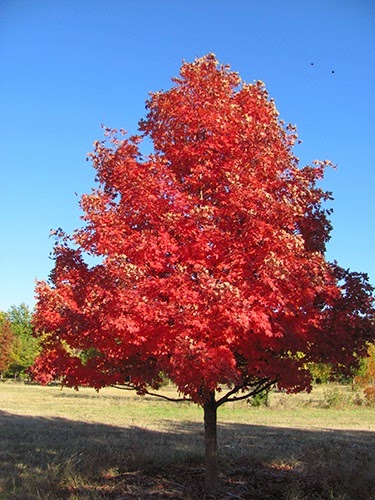Colorful Weeds
Purple has always been my favorite color. From lilacs to K-State, I love every shade. This
lawn. The plant with the little purple flowers that has been popping up everywhere is called henbit. Although the weed is colorful it unfortunately competes with our grass for water and nutrients. Even if you love the color of the flowers, it’s best for your lawn’s health to eliminate the weed.
 If you are not sure this is what you have, check the stems. If they are square rather than round, you have henbit. Henbit is a winter annual and actually starts its growth cycle in the fall. It spends the winter as small plants and so most people do not pay much attention to them until they start to flower in the spring. Trying to kill henbit at this late stage with an herbicide usually is a waste of time and money. Though plants may be burned back, they will rarely be killed.
If you are not sure this is what you have, check the stems. If they are square rather than round, you have henbit. Henbit is a winter annual and actually starts its growth cycle in the fall. It spends the winter as small plants and so most people do not pay much attention to them until they start to flower in the spring. Trying to kill henbit at this late stage with an herbicide usually is a waste of time and money. Though plants may be burned back, they will rarely be killed.
So what should you do? Remember, these are winter annuals that will die as soon as the weather turns hot. Keep the lawn mowed until nature takes its course. However, you can do something in fall that will help next spring. Henbit and other winter annuals usually germinate about mid-October. Spraying with 2,4-D, Weed-B-Gon, Weed Free Zone, Weed Out, or Trimec in late October to early November can go a long way toward eliminating these plants as they are small and relatively easy to control.
 Choose a day that is at least 50 degrees. These herbicides will work at temperatures below 50 degrees but the weeds are killed at a slower rate. You may also use a preemergent herbicide for lawns in late September as long as you have not recently put down grass seed. Spraying with the postemergence herbicides mentioned earlier will also catch dandelions which the preemergent herbicides will miss.
Choose a day that is at least 50 degrees. These herbicides will work at temperatures below 50 degrees but the weeds are killed at a slower rate. You may also use a preemergent herbicide for lawns in late September as long as you have not recently put down grass seed. Spraying with the postemergence herbicides mentioned earlier will also catch dandelions which the preemergent herbicides will miss. Weeds always seem to pop up in our lawns and gardens no matter how often we pull them out. This year try to get ahead of the game by properly identifying your weeds and planning an herbicide program. If you would like more details about treating your lawn for weeds contact Cassie Homan, Post Rock District Horticulture Agent, at (620)213-3137 or by email at choman@ksu.








